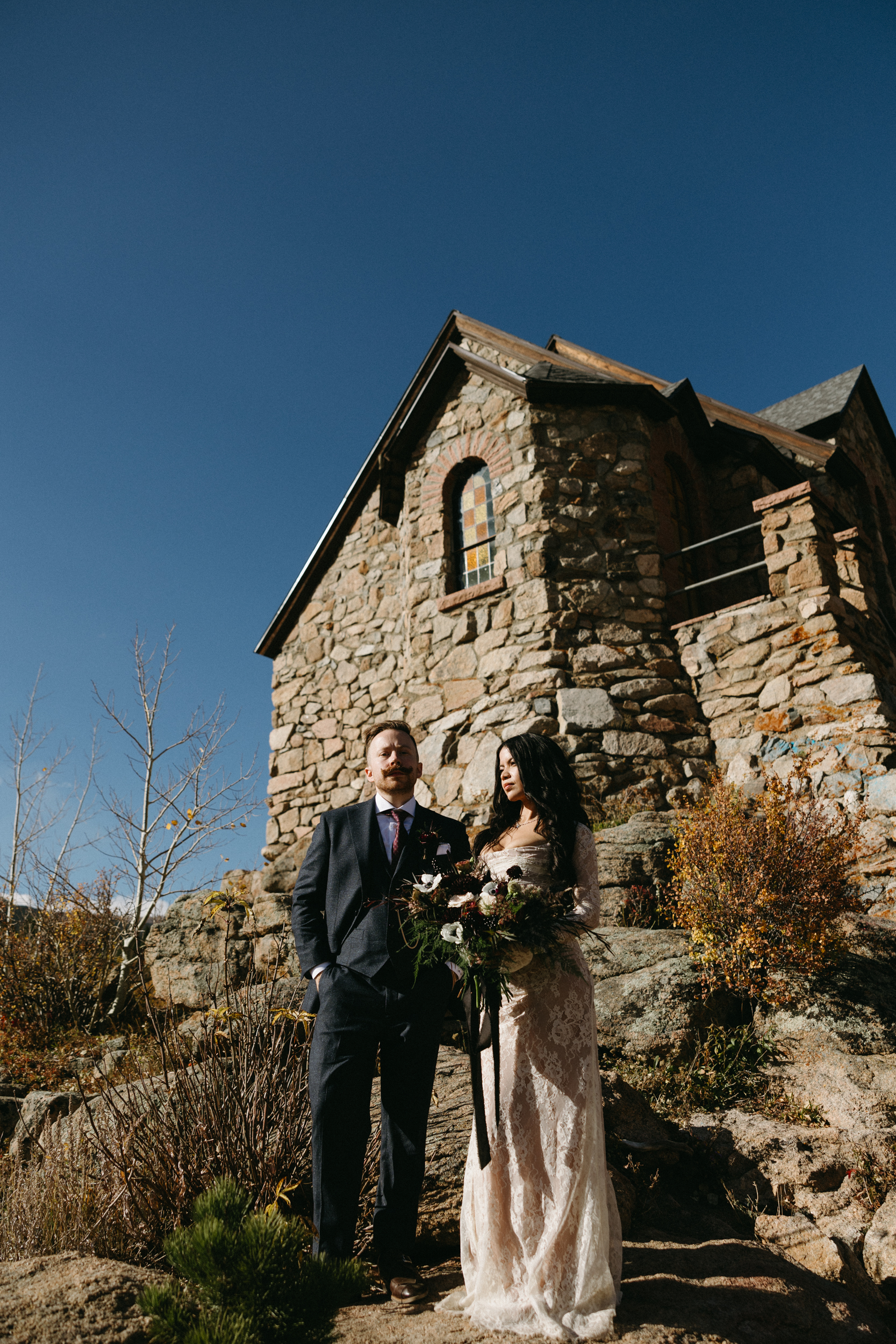Colorado is one of the few states that offers an option for minimizing the production value of a wedding and creating a low-key day.
A self-solemnization ceremony (or self-uniting marriage) is perfect for engaged couples who are dreaming of a chill wedding day with the least number of strangers involved as possible.
In this guide, we’ll cover the legal requirements for self-solemnization, provide tips for planning your unique ceremony, and offer inspiration to help you craft personalized vows that aren’t being written by an officiant. Say goodbye to tradition, and hello to a wedding that is as extraordinary as your love. Let’s dive in and discover how to say “I do” your way in beautiful Colorado.
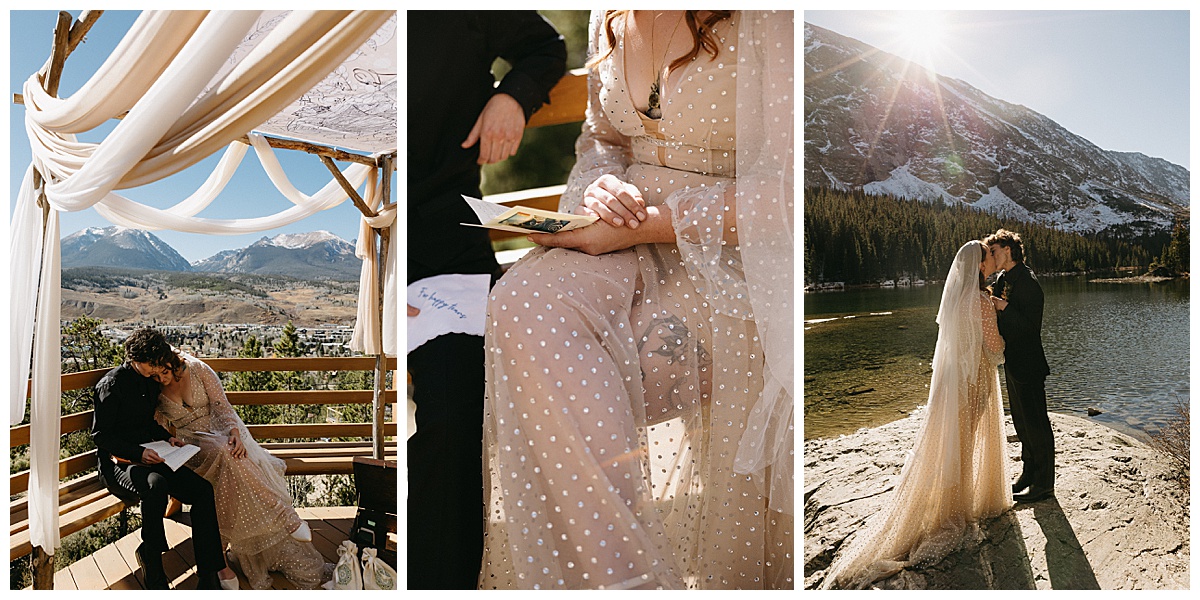
What is Self-Solemnization?
Self-solemnization is the act of solemnizing your own marriage without the need for a third-party officiant. So, basically – congrats, you’re the officiant! In Colorado, this means you and your partner have the legal right to perform your own wedding ceremony. This option allows you to legally marry each other without the constraints of traditional wedding customs. Keep in mind, while Colorado does not require witnesses or officiants for self-solemnization, you can still have guests present.
The Legal Requirements for Getting Married in Colorado
Before you decide if a self-solemnization ceremony is for you, you should understand the legal requirements for marriage in Colorado. While self-solemnization offers freedom and flexibility, there are still a few guidelines you must follow to ensure your marriage is legally recognized.
You and your partner must be at least 18 years old and not closely related by blood or adoption. You both also need to obtain a valid marriage license from a Colorado county clerk’s office. This process requires presenting appropriate identification and paying the required fees. Each county is different, so I recommend Googling *Insert County Here* Marriage License. They should have a website to walk you through everything. Here’s Summit County’s website as an example. It doesn’t matter what county you get your marriage license in, but I always encourage couples to get it where they’re staying to make their lives easier.
Your marriage is legally recognized everywhere even though you’re obtaining a marriage license in Colorado.
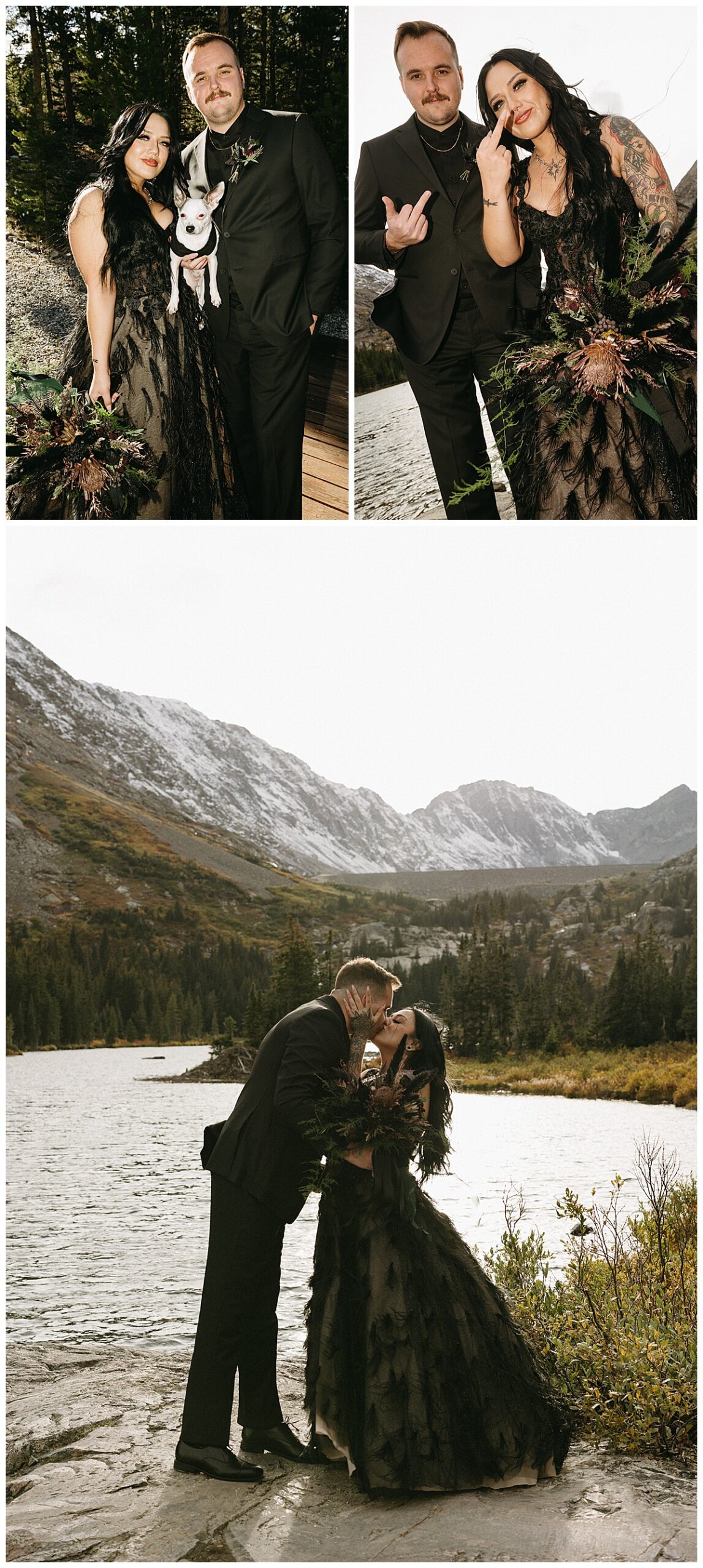
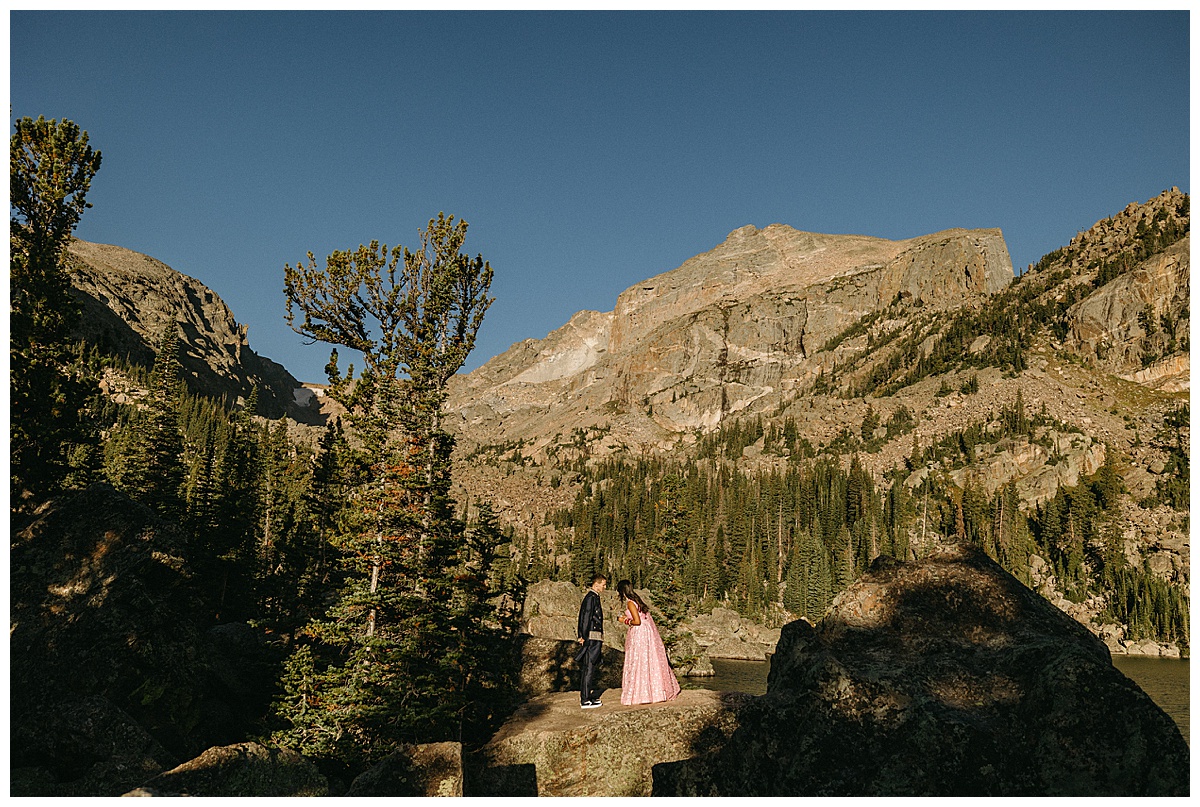
Benefits of a Self-Solemnization Ceremony
Self-solemnization offers a lot of benefits that make it a great option for couples looking to break away from traditional wedding norms. Here are just a few of the advantages of choosing a self-solemnization ceremony in Colorado:
- Your dog can sign your marriage license: This is a huge draw for couples all over the U.S. Your dog (or cat, or kid, etc.) can sign your marriage license as a witness. *Note that Arapahoe and Denver County do not allow this. We don’t know why, but avoid getting your license there if you want your fur baby to sign.
- Personalization: Self-solemnization allows you to create a ceremony that truly reflects your unique love story and individuality. You have the freedom to incorporate meaningful rituals, readings, and traditions that hold significance to you and your partner. Whether you want to write your own vows, include a symbolic gesture, or incorporate cultural elements, self-solemnization gives you the flexibility to make your wedding truly one-of-a-kind.
- Cost-effectiveness: Skip the hefty price tag of hiring an officiant. With self-solemnization, you can save money by eliminating the need for a third-party officiant. This allows you to allocate your budget toward other aspects of your wedding that matter most to you.
- Flexibility: Self-solemnization gives you the freedom to choose when and where you want to get married. Whether you envision saying your vows on a mountaintop at sunrise or in a cozy cabin surrounded by loved ones, you have the flexibility to make it happen.
- Intimacy: By choosing self-solemnization, you can create an intimate and deeply personal experience for you and your partner. Without the presence of a third-party officiant, you have the freedom to share your vows and promises in a private setting, allowing for a more emotional and meaningful connection
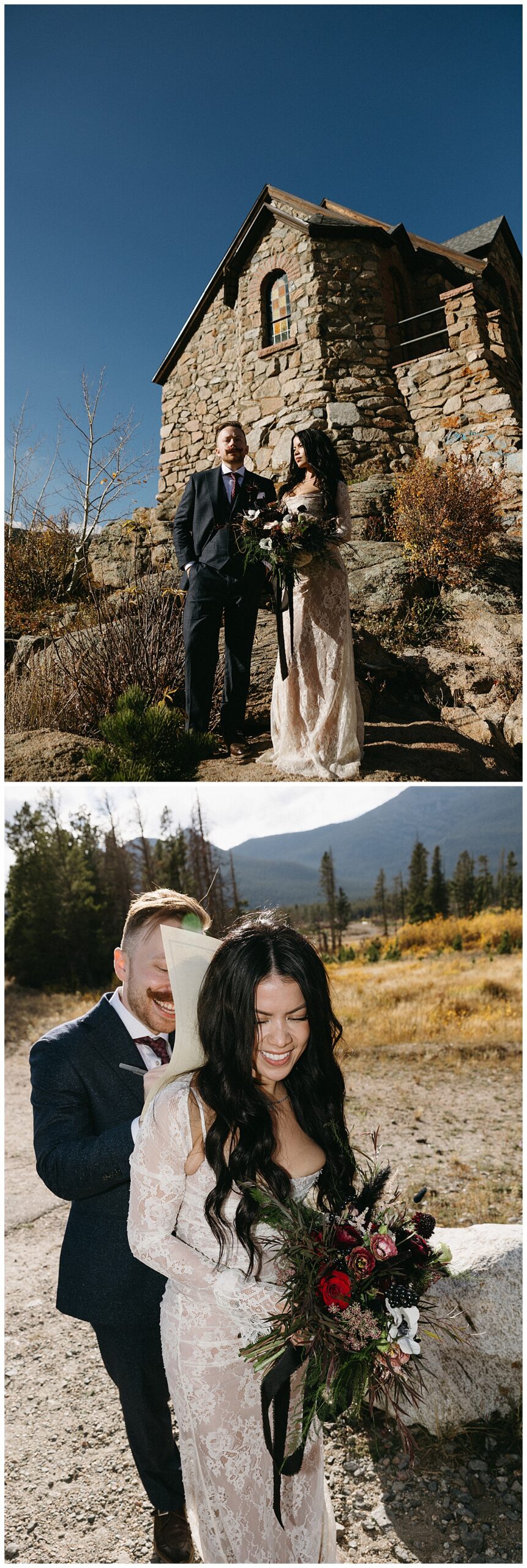
Planning Your Self-Solemnization Ceremony
Now that you understand the concept of self-solemnization and the legal requirements, let’s talk about planning your ceremony. It will follow a similar structure to a traditional wedding, but with the added freedom to customize every detail according to your preferences.
Vow Guidelines
Colorado doesn’t require anything special for you to self-solemnize besides signing your marriage license. Your vows can be anything you want them to be. I have couples who don’t like to read out loud or don’t feel like they have the adequate words to string together to let their partner know how they feel. Here are some alternative ideas that count as vows in Colorado:
- Sharing a first dance
- Writing each other journal entries and reading them quietly
- Enjoying your favorite meal in the mountains together
- Hiking your favorite trail
If you want to write vows, that’s cool, too! Writing your own vows is one of the most beautiful and personal ways to express your love and commitment to your partner. It allows you to truly speak from the heart and create a moment that is unique to your relationship. Your vows don’t have to be a set of promises. Here are some tips to help you craft heartfelt, personalized vows that aren’t cheesy AF:
- Reflect on your journey: Take some time to reflect on your relationship, from the moment you first met to the present day. Think about the challenges you’ve overcome together, the joyous moments you’ve shared, and how your partner has impacted your life.
- Be YOU: Your vows should be a true reflection of who you are as individuals and as a couple. Don’t be afraid to be vulnerable and share your deepest feelings. Speak from the heart and let your partner know why they are so special to you. Don’t be afraid to talk how you usually talk, sailor mouth included.
- Keep it concise: While it’s important to express your love and commitment, it’s also essential to keep your vows concise. Aim for a length of around two to three minutes when spoken aloud. Talk about this with your partner as well – it can be awkward AF if one of you talks for five minutes and the other person only has 30 seconds.
Including Loved Ones
One of the most beautiful aspects of a self-solemnization ceremony is the opportunity to involve your loved ones in meaningful ways, even if they’re not there physically. Here are some ideas to help you include your family and friends in your special day even if you’re eloping:
- Unity rituals: Consider incorporating unity rituals into your ceremony to symbolize the joining of two families. Some popular options include making a sandwich (seriously, best snack ever with dual purpose), a sand ceremony, or a hand fasting ceremony. These rituals provide an opportunity for your loved ones to participate and witness the blending of your lives.
- Readings: Invite your loved ones to share readings or blessings during your ceremony. This could be a favorite poem, a meaningful passage from a book, or a heartfelt message they have written specifically for you. OR have your loved ones write you a letter to read together at your elopement. This is a favorite with my elopement couples. They have their family write them a letter that is sent to my house, so they’re not tempted to read them before eloping.
- Honoring loved ones: Take a moment during your ceremony to honor loved ones who may not be present. Display their photographs or incorporate a special tribute that holds significance to you.
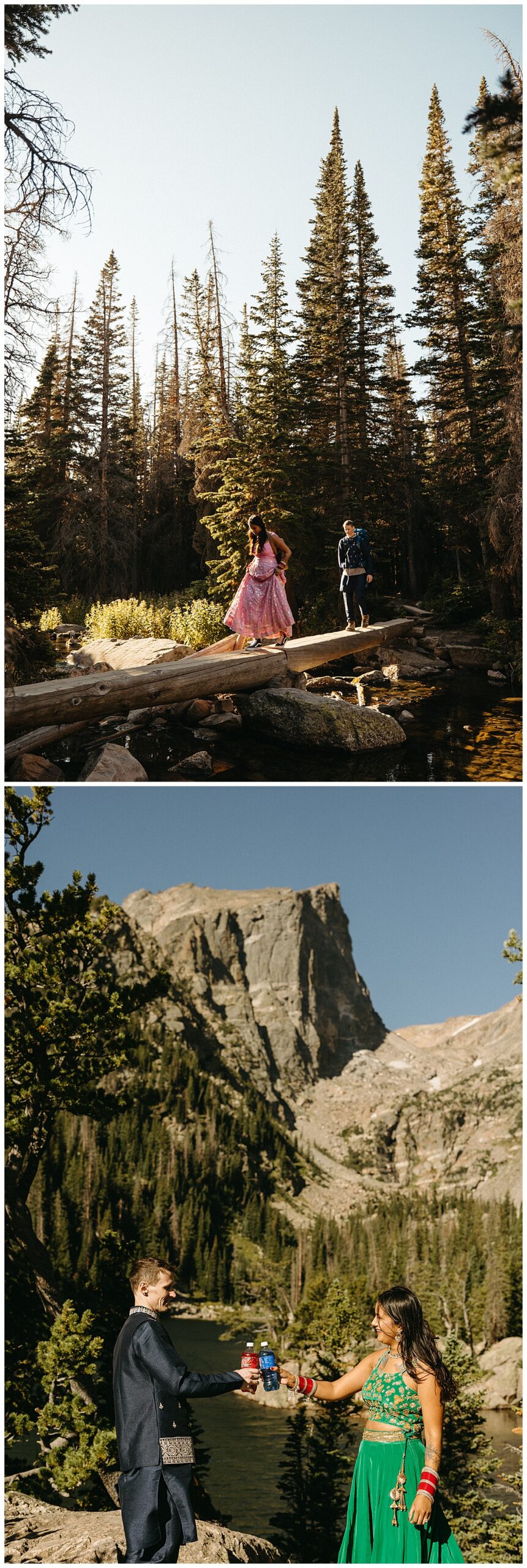
Celebrating After the Ceremony
After your self-solemnization ceremony, it’s time to celebrate with OR without your loved ones. While traditional receptions often include formalities like dinner and dancing, a self-solemnization reception can seriously be anything you want it to be. Here are some ideas to inspire your post-ceremony festivities. Pro tip: Consider having a brunch wedding so you have all day to do more activities. It’s a move and leaves time for a casual stop at Taco Bell…
- Outdoor adventure: Colorado’s stunning landscapes provide the perfect backdrop for an outdoor adventure-themed celebration. You could host a picnic in a scenic park, organize a hiking or biking excursion, paddle board the Dillon Reservoir, or even arrange a hot air balloon ride for you and your guests to enjoy. There are activities for all types of people in Colorado.
- Food and drink experiences: Colorado is known for its craft breweries, wineries, and farm-to-table dining experiences. Incorporate these local flavors into your celebration by arranging a beer or wine tasting, hiring a food truck to serve delicious bites, or hosting a farm-to-table dinner using locally sourced ingredients. Your guests will appreciate the unique taste of Colorado.
- My favorite culinary experiences are from: Harvest to Home, At Your Breck & Call, and Chef Roilty for my stoner friends.
So, You’re Getting Married in Colorado Now, Right?
Self-solemnization allows you to embrace the freedom and creativity that comes with creating your own traditions without an additional stranger to be hired.
Remember the most important thing about planning your wedding or elopement is to stay true to you. Colorado provides the perfect canvas for your dream wedding, allowing you to say “I do” surrounded by breathtaking landscapes, vibrant cities, and the support of your loved ones. So go ahead, write your own love story, and say “I do” your way in beautiful Colorado.
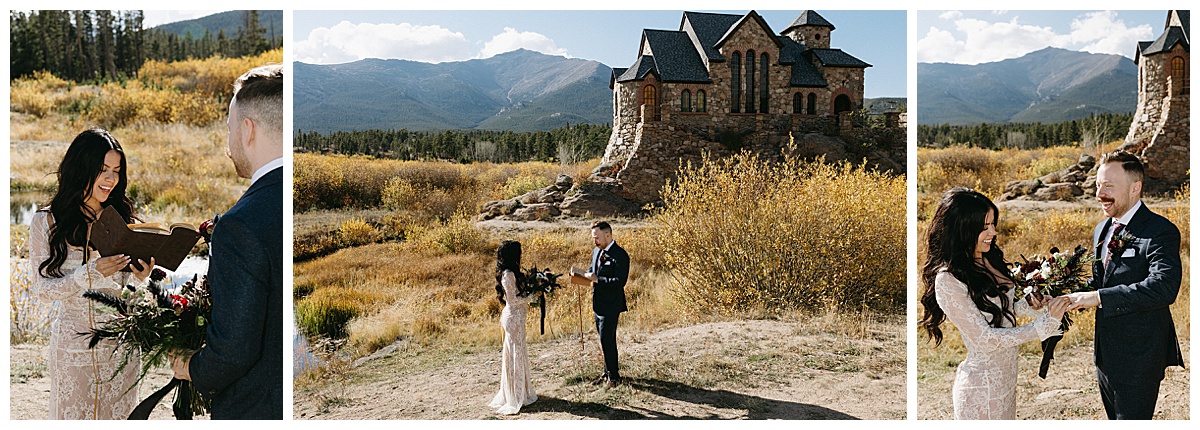
Looking for more tips on how to plan a wedding or elopement? I have an entire guide of what do to after you get engaged.
View Guide
What You Need to Elope in Colorado
Comfy Colorado Winter AirBnb Elopement
Denver Botanic Gardens Wedding
